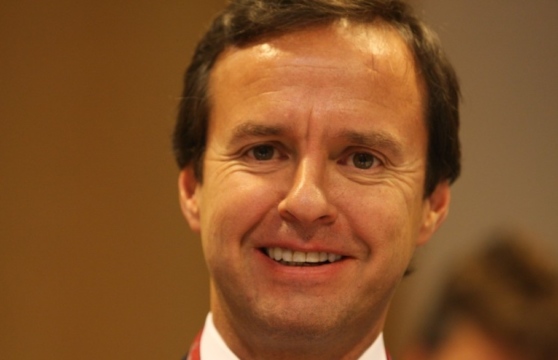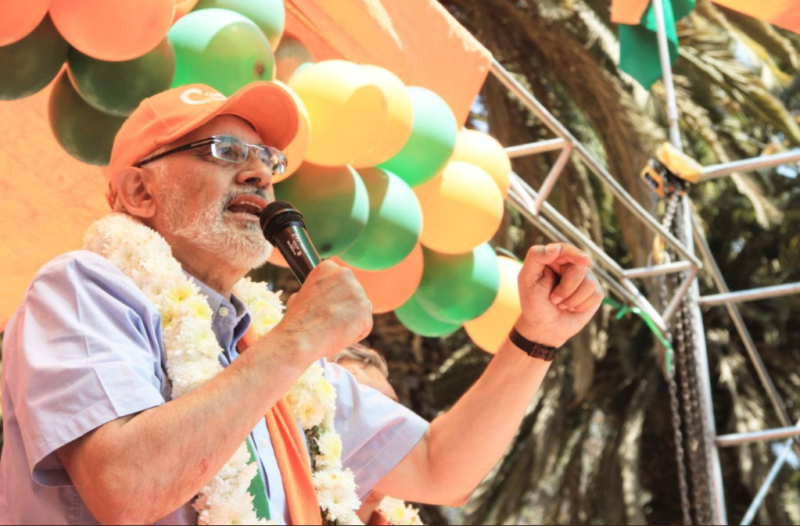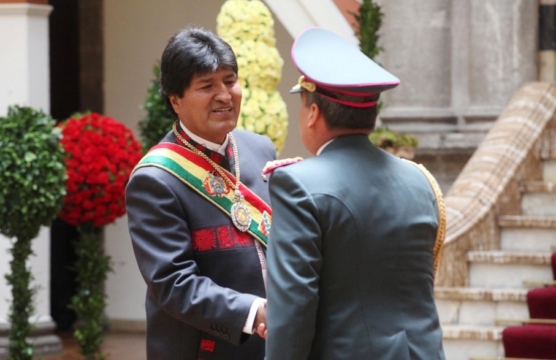
A Conversation with Jorge Quiroga
In early October, Morales announced he will run for a third presidential term . Is democracy under seige?
A Daily Publication of The Dialogue
Bolivian President Evo Morales is running for his fourth consecutive term in the country’s presidential election in October. Polls in July showed Morales as the front-runner with 37 percent support, followed by former President Carlos Mesa with 26 percent of the vote, according to a Ciesmori survey. How is the race shaping up, and do Mesa or other opposition candidates stand a chance against Morales? What are the most important factors driving voters’ preferences this election cycle? To what extent could the election’s results shake up Bolivia’s business climate, or is continuity expected regardless of the outcome?
Daniel E. Moreno, executive director of Ciudadanía, Comunidad de Estudios Sociales y Acción Pública, in Cochabamba, Bolivia: “For the first time in a decade and a half, the 2019 national election in Bolivia seems to be headed for a very close finish. No intention poll so far has suggested that the front-running presidential candidate will have a wide enough margin to avoid a runoff election, where he might lose against a single opposition candidate. But even if Morales does win in October with at least 40 percent and a gap of 10 points between him and the runner-up, it seems unlikely that MAS will have the same legislative control that they have enjoyed until now, forcing them for the first time to establish alliances within an estranged political system to guarantee governance. And with the economic bonanza over and a set of difficult adjustments in order, uncertainty looms large on the Bolivian political horizon. But the main challenge awaiting the next government comes from the low legitimacy of the electoral process. Ignoring the results of the February 2016 referendum that rejected a constitutional amendment that would have legally allowed Morales and García to run again for office has taken a large toll on the credibility of democratic institutions. The electoral institution faces historically low levels of public trust, and most Bolivians have doubts over the transparency and fairness of these elections. Whoever wins the race, particularly if it is Morales, will have to govern with the stigma of a questioned election and will need to devote efforts to ensure that both citizens within the country and the international community believe that they have the right to be there.”
Roberto Laserna, director of the Center for the Study of Economic and Social Reality: “A fourth consecutive term was and is banned by the Bolivian Constitution. In 2006 Morales swore to respect a law that allowed re-election only after one term out of office. He managed to change that so that he could be re-elected once, promising to step down after that. Running for the fourth time not only goes against his word and the law, but also fails citizens, who voted against re-election in a 2016 referendum. Why is Morales doing this? Because he has the power and wants to keep it. Since 2006, he managed to concentrate power while weakening institutions, giving top priority to his own permanence. With a 14-year campaign, having unrestricted access to public funds, it cannot be a surprise to see him leading the race. Carlos Mesa, on his part, has done little to counter that. He failed to unify the opposition leaders and has been unable to expand his electoral base. Despite being a populist ‘caudillo’ himself, he is reluctant to play politics. Mesa distrusts parties but lacks organizational skills to replace them. He jumped to the race after months denying that intention. Now his campaign is based on the promise to restore the rule of law while keeping the positive aspects of Morales’ legacy. If Morales were out of the race, Mesa would certainly be the next president. But if continuity is fine, as Mesa suggests, why would voters turn against Evo? Moreover, it will not be ‘business as usual’ in the coming years. The export bonanza is fading, and the country is running high fiscal and trade deficits. Bolivians are about to discover that abundance played again its trick: supplying illusions while dismantling local productive capacities. It’s the rentier trap.”
Kathryn Ledebur, director of the Andean Information Network in Cochabamba: “August results indicate a growing gap between Morales and Mesa. Morales shows a three-point advantage even in urban areas, assumed to be the strongest sector of opposition support. Third-place candidate Ortiz dominates in Santa Cruz. Polling consistently underestimates support for Morales in rural areas. Without a clear electoral platform, consolidated party or achievements during his short presidential term, it is unlikely that Mesa can defeat Morales, who now could win in the first round. In spite of frustrations with Morales and his longevity in office, voters tend to opt for an established track record, concrete programs, a clear status quo, stability and a strong economy, over term limits or change with uncertain outcomes. The state is the largest employer in the nation, and these workers will vote for continued employment. During the past 12 years, the Bolivian opposition has been unable to build a credible party with platform and electoral strategies; their constant rebranding and persisting divisions shows. Nor have opposition groups been able to achieve legitimacy with farmers, workers or low-income urban residents. Platforms and proposals, as well as slates of candidates, reinforce this omission, and further complicate electability. Although indigenous and other groups often present divisions and mixed evaluations of the Morales administration’s ability to meet their demands, no competing candidate has provided any concrete offer to surpass the incumbent’s compliance or significantly address their concerns. In spite of an electoral slump, Bolivia’s current economic growth, the strongest in Latin America, suggests continuity with a Morales victory.”
Raúl Peñaranda, Bolivian journalist and director of news platform Brújula Digital: “Recent polls in Bolivia show President Evo Morales has a nearly 10-point lead with the runner-up, Carlos Mesa, ahead of the Oct. 20 election. Morales, whose candidacy is illegal because it violates the Constitution and the 2016 referendum, has lower support as compared to previous elections in which he participated, which could prompt a second round. Morales has nearly 14 years as president, and he hopes to complete 19 years in power. In Bolivia, to be president a candidate must obtain 51 percent of the votes, or 40 percent and a 10-point difference with the second-place candidate. Some polls indicate Morales could win in the first round, but others show support for Mesa could force a runoff, in which Mesa would seem to have higher chances of winning. Thus the electoral scenario is very uncertain, with officialism attempting to convince Bolivians that the economic growth and political stability experienced during the last decade would be lost if Mesa wins—as it happened when he briefly governed from 2003 to 2005, when he ended up resigning. Such fears are not unfounded, and we can’t discard that an eventual Mesa administration would be affected by social pressure and an economic crisis, which some analysts say are inevitable in coming years. Even if Morales achieves re-election, his term doesn’t seem promising, either, since he would have a very small majority in both chambers, and he could even lose control in the Senate. Morales would begin his fourth term with the wear and tear of a too-long administration, in addition to the illegitimacy of the election and economic challenges.”
The Latin America Advisor features Q&A from leaders in politics, economics, and finance every business day. It is available to members of the Dialogue's Corporate Program and others by subscription.
In early October, Morales announced he will run for a third presidential term . Is democracy under seige?
With Morales’ approval rating at 75%, it is likely that voters will re-elect him for a third consecutive term
Bolivian President Evo Morales won re-election with an estimated 60 percent of the vote. What can investors expect?
 Carlos Mesa Gisbert (pictured), who held the presidency for a year and a half before he resigned in 2005, is campaigning to unseat President Evo Morales, who is seeking a fourth consecutive term. // File Photo: via Twitter @carlosmesaag.
Carlos Mesa Gisbert (pictured), who held the presidency for a year and a half before he resigned in 2005, is campaigning to unseat President Evo Morales, who is seeking a fourth consecutive term. // File Photo: via Twitter @carlosmesaag.
